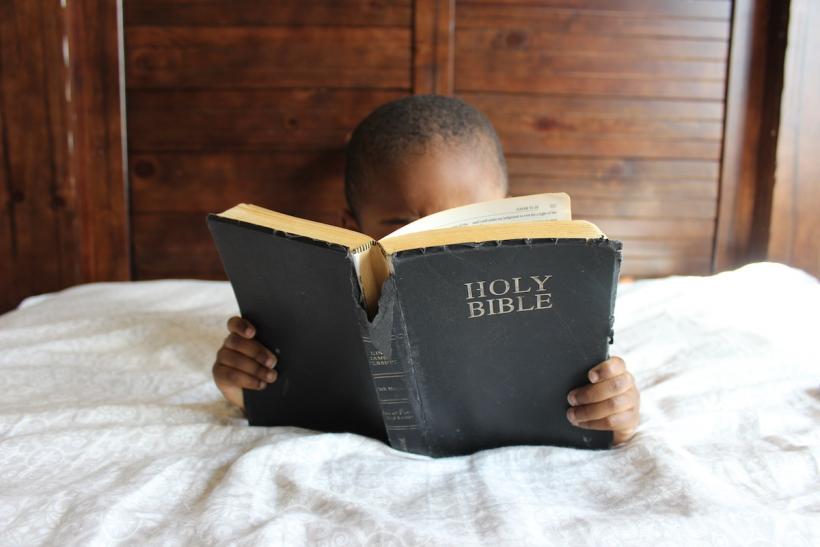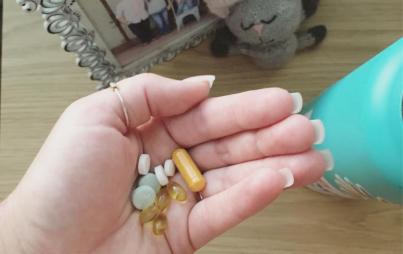
Photo by Samantha Sophia via Unsplash
I grew up in a black, Christian home in a relatively small but somewhat urban city. Throughout my childhood, I spent a lot of time in church. Looking back, I could even argue that I had too much church, attending on both Saturday and Sunday because my parents ascribed to different Christian denominations. That, in and of itself, wasn’t a problem when I was younger — at least not for me. The more God I could get, the merrier.
My family depended on God for everything and taught me to do the same.
I prayed a lot — when I was sad, when I was scared, before eating at the lunch table. God was a big part of my upbringing, and I am grateful for that.
I’d been raised to believe that God could fix all of my problems, big and small, and I still do even now. It’s because of this that I often find it hard to express the way I feel. I see people argue about the technicalities of depression on social media all the time. “You don’t have depression; you just feel depressed.” And every time, I second guess myself.
My personality contradicts how society depicts depression. I like to laugh. Even more than that, I want to make other people laugh. Most people would say that I’m a socialite, an extrovert, a conversationalist. I’ll admit, I am “good” in social settings and eventually seem comfortable in most rooms, but that doesn’t dismiss or invalidate my reality with depression.
My depression coexists with my gratefulness, compassion, and good intentions. They all share the same body. Some people would say that makes me a failure of faith, but I think it makes me human.
I can’t trace my depression to a start date. I don’t recall the first time I noticed it or called it by name. Of course, I remember times when I felt sad, but sadness and depression are not synonymous. For this exact reason, I ignored my depression.
“I’m just having a bad day,” I would say to myself.
“Must’ve woke up on the wrong side of the bed.” “My hormones must be out of whack.” “My period must be coming.”
Anything but depression came to mind because “God is too good to be depressed.”
I believed that. I accepted it. I didn’t have depression. Christians don’t have depression. Black women are too strong for depression. God is too good for depression.
I couldn't relate to all that I'd been taught about depression. I had only seen the most extreme cases. Like many people, I shrugged it off, dismissing it as temporary emotions. I believed that depression meant you must be suicidal. I have never wanted to kill myself, and so I thought, I must not be depressed.
You Might Also Like: An Open Letter To (My) Depression
I grew up on Psalms 23 — “The Lord is my shepherd” — and, like most Christians, I know it by heart. It is one of the Bible's most recognizable passages. At 26 years old, I do believe God has been good to me. I’ve survived emotionally and physically abusive relationships, walked away from a few car accidents, debunked stereotypes about black girls — being a child of divorced parents, being raised by a single mother, and even living in poverty.
I have always had everything that I needed: food on my table, clothes on my back, money in my account, and a sound support system. Why would I be depressed? It didn’t make sense to me. But depression is not just about a lack of happiness.
My depression hides behind my smile. It hides behind scripture, sings on the praise team, and worships in the congregation. It is often draped in optimism and functions like a chameleon. Especially in church. Especially at work. Especially in places where people will notice.
So I deal with it in my room, in the shower, in my car. I am depressed when no one is around because that is how we get most acquainted. My depression coexists with my gratefulness, compassion, and good intentions. They all share the same body. Some people would say that makes me a failure of faith, but I think it makes me human.
I am blessed, yes, but I am also depressed.
It isn’t something I measure for validity. It isn’t negated because I go to church or because I believe in a God who can do the impossible. We live in a world that doesn’t make happiness an easily attainable feeling. Everything is temporary. I believe it is possible that one day, my depression will cease to exist. I also know that it may be a lifelong struggle and, honestly, that’s okay.








